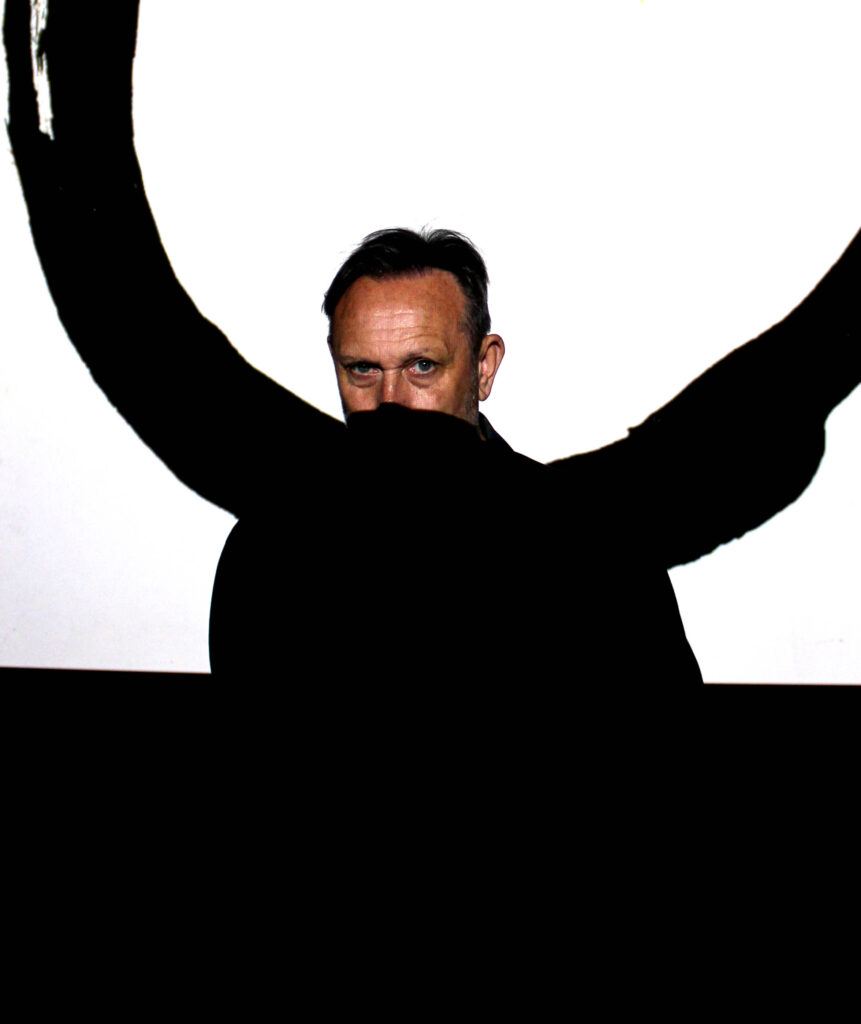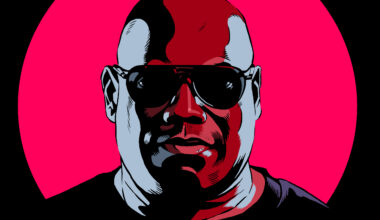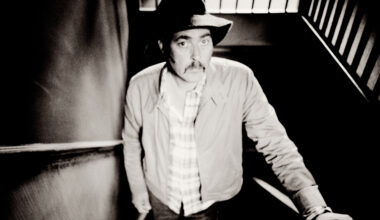The pioneering former Cabaret Voltaire frontman and Creep Show and Wrangler maverick, Stephen Mallinder ponders a few of his influences, past and present

The Ark, Sheffield
“This was a youth club, run by some vicar in Crookesmoor in Sheffield and I guess they must have had a good sound system. It was where I first met Richard [H. Kirk] when we were 14 years old, in 1969. We were kind of football/soul boys and we’d go down in mohair suits, even though we were only 14, and listen to Prince Buster and ska records – all the Invictus Records stuff and early Motown. It was part of the culture, you were working class and into working class soul music. There was a core of people that went there who seem to have filtered through the years. Obviously there was Richard, and I’m still friends with [Clock DVA/Crooked Man’s] Michael Ward. I’m also still mates with Ade Stark. He’s not a musician, but he’s been around as long as me. We used to go shoplifting together when we were young. He’s a big music fan, he once had jukebox full of Cabs seven-inches and these days he turns up to everything, travelling to see Wrangler and Creep Show.”
Early BBC Drama
“When I was coming of age, I was really into reading and getting into art and culture. In 1970, the BBC did a big adaptation of Jean-Paul Sartre’s ‘The Age Of Reason’, which was called ‘The Roads To Freedom’. It drew me to those books, so I was reading Sartre when I was 14! I would never have gone to the library and just picked up books like that, but being young and a child of the television age, it was a catalyst. Then there was Ken Loach and ‘Play For Today’. All the Mike Leigh plays and Dennis Potter were also big around that time. The BBC did an amazing job, and still does, within drama. I should also mention ‘Threads’, which was a 1984 film about an atomic bomb landing in Sheffield, of all places. Just after they’d made it, we went and filmed our ‘Sensoria’ video on some of the old sets where this fictitious apocalypse had been filmed”
Mark Rothko
“Expressionism is a big thing for me, but Rothko is more than that. The idea that he could take something and narrow it down like that, is just amazing. I just love his work. The third floor of the Tate Modern in London has the Mark Rothko room, and it’s always busy! I have this idea that they should allow you to book and only six to 10 people should ever be allowed in the Rothko room at any given point. That space and those stunning pieces of work and the dimensions of them… it should not be a crowded event. I’d love to have a private viewing. The size, the architectural feel of his work – it’s pure soul, a portal to another world. The idea of air and light and material comes through in such beautiful and massive, monstrous forms. He almost feels like the antithesis of Jackson Pollock. If Pollock is matter, then Rothko is antimatter. The calm through the chaos.”
The Autobiography Of Malcolm X
“In light of the Black Lives Matter movement and the systemic racism that we’re now starting to confront, ‘The Autobiography Of Malcolm X’ is massively significant. It was done through Alex Haley, and he writes a massive introduction to the autobiography. It encapsulates where America was at the time when Malcolm X got assassinated, the irony being that nothing has particularly changed in the 50 years since then. It’s a brilliant read. His early life was quite mad. He converted to Islam in his late 40s, when he was in prison. He was a pimp and a drug dealer and a hustler before that, but he had this massive Damascene revelation, this epiphany in this awareness of race politics in America. It deals with the history and the consequences, the social impact of racism, but also one individual’s ability to cut through the shit and articulate those thoughts.”
Dark
“Everyone’s talking about boxsets in lockdown. My favourite one at the moment is a German series on Netflix called ‘Dark’. Imagine a mad, German, intellectual version of ‘Stranger Things’ and you’re sort of there. It’s about time travel, wormholes and alternate universes and it also incorporates religious cults and the apocalypse. It’s set in a fictitious town in East Germany, but the series takes place in five different time periods. Every character has about four or five versions of themselves and you never know which time you’re in, or who’s talking to who. Stylistically, it’s amazing and it’s sort of ‘Twin Peaks’-y. There’s some really nice modular, minimal sound design to it. I did look online at the family tree, but it takes up about three pages and I’m going, ‘No wonder I can’t fucking work out what’s happening!’.”
Korg Kaoss Pads
“I love Kaoss Pads. At last count, I had seven. A couple need repairing, but I’ve got three here at the moment and for DJing I use controllers with built in Kaoss Pads, so I’ve got two of those as well. If I could cook with them, I would. It’s not the only thing I use, but they keep popping up on everything. It’s so much fun. I love the idea of an instrument that is based entirely around the concept of chaos. It works perfectly for me. There’s a level of structure in what is going on, but then you can just mess it up as much or as little as you want. Phil Winter from Tunng first introduced me to them. In fact, one of the Kaoss Pads I’ve claimed is mine is actually Phil’s. I borrowed it off him 10 years ago and I’ve never given it back!”
A reissue of Stephen Mallinder’s 1982 debut solo album ‘Pow Wow’ is on Ice Machine





